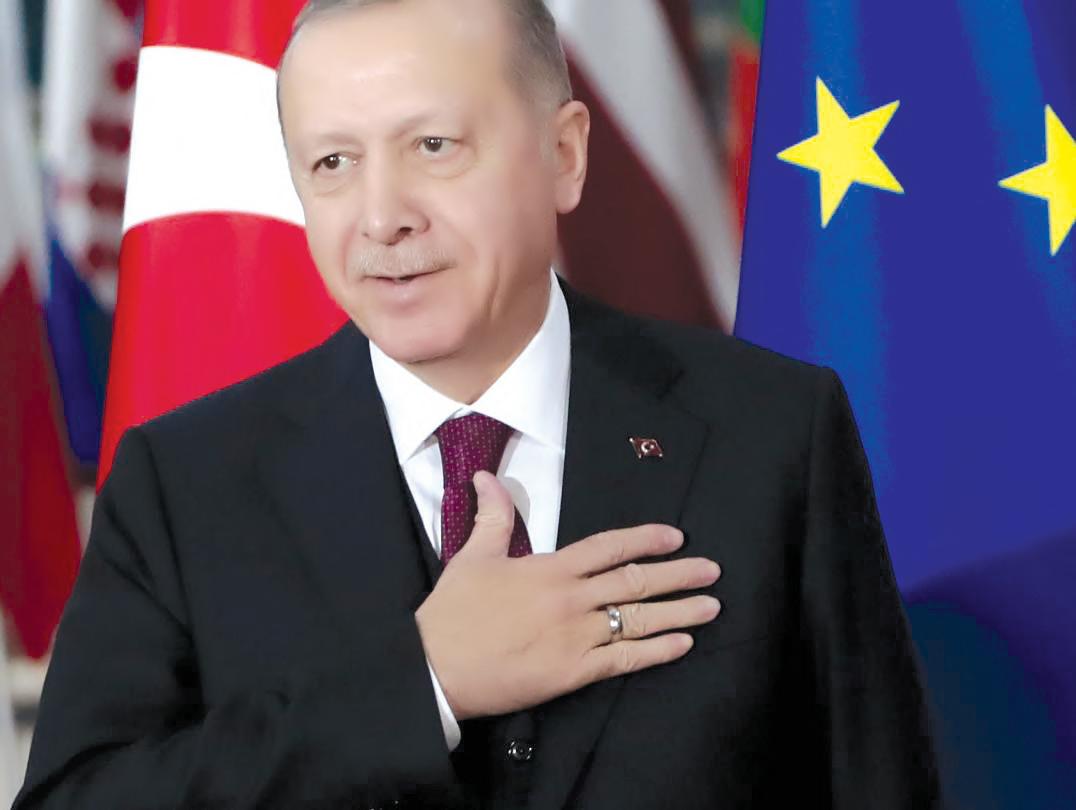
4 minute read
TANAP: A Catalyst for Regional Peace and Development
RECEP TAYYIP ERDOĞAN
President of Turkey
Advertisement
The Trans Anatolian Natural Gas Pipeline Project (TANAP), one of the most outstanding indicators of the unifying role of energy, is a regional peace project. TANAP is a concrete example of the excellent relations between Turkey, Azerbaijan and Georgia based on mutual trust, and a symbol of the deeply rooted friendship between our countries. TANAP constitutes the backbone of the Southern Gas Corridor, which aims to deliver natural gas from the Caspian Region to Europe, through Georgia and Turkey. Thus, it forms the most important part of this corridor, with a length of around 3,500 kilometres.
The change and transformation that Turkey has experienced over the past eighteen years also paved the way, in a sense, for the transmission of the region’s energy resources to Turkey and Europe. Thanks to our cooperation with Azerbaijan and Georgia, the BakuTbilisi-Ceyhan Crude Oil Pipeline was launched and commissioned in 2006. Later, the Baku-Tbilisi-Erzurum Natural Gas Pipeline was put into operation in 2007, to transport the natural gas produced at Azerbaijan’s Shah Deniz Field to Georgia and Turkey. The will to improve this trilateral cooperation has brought TANAP into life.

Turkish President Recep Tayyip Erdogan puts his hand over his heart in a gesture of hello prior to a meeting with European Council President Charles Michel.
CREDIT: Virginia Mayo/The Associated Press.
The first steps for TANAP were taken with an Intergovernmental Agreement signed on 25 October 2011 by Turkey and Azerbaijan. As a result of subsequent negotiations and thanks to the support of both Georgia’s and Azerbaijan’s Shah Deniz Field partners, the Intergovernmental Agreement and the Host Government Agreement of TANAP were signed on 26 June 2012 by Turkey and Azerbaijan. Following the final investment decision taken by Shah Deniz Field partners for Phase 2 of the project in December 2013, works on the extension of the Baku-Tbilisi-Erzurum Natural Gas Pipeline, passing through Azerbaijan and Georgia to Turkey, and on the construction of TANAP were accelerated. TANAP was built in a short time span of three years, after the laying of its foundation on 17 March 2015 and it began carrying gas to Turkey on 12 June 2018. In addition, the European connection of TANAP was inaugurated with a ceremony held on 30 November 2019.
Turkey has given political and commercial support at all stages of the natural gas supply chain starting from Azerbaijan, passing through Georgia and Turkey, and extending to Europe. Turkish Petroleum, with its 19 % share, is the second largest investor in Shah Deniz Field and the Baku-Tbilisi-Erzurum Natural Gas Pipeline, and BOTAŞ, with its 30 % share, is the second largest investor in TANAP. Turkey has a key position in the value chain of approximately 45 billion dollars, consisting of the Shah Deniz Phase 2 Project, the Baku-TbilisiErzurum Natural Gas Pipeline Extension Project, TANAP and Trans-Adriatic Natural Gas Pipeline (TAP). Turkish pipe manufacturers and construction contractors have played an important role in TANAP, which was launched with an investment of approximately 6.5 billion dollars.
TANAP, with an annual capacity of 16 billion cubic meters of natural gas transmission, starting from the Georgia-Turkey border and passing through 20 provinces, 67 districts, and 600 villages, will make a significant contribution to the energy supply security of Turkey and the rest of Europe. By the end of 2019, Turkey has received 3.7 billion cubic meters of natural gas through TANAP. This amount will gradually increase and reach 6 billion cubic meters per year, and, upon the completion of the Trans Adriatic Gas Pipeline in 2020, 10 billion cubic meters of natural gas will be supplied to Europe. In the coming years, it is planned to increase the capacity of TANAP to 24 billion cubic meters first, and then to 32 billion cubic meters - which is the maximum technical capacity.
70 % of the world’s proven natural gas reserves are located in the nearby geography of Turkey. Besides being the world’s 18th largest natural gas market, Turkey is in a position adjacent to Europe which is the second largest market. In this context, TANAP has significant potential, in terms of delivery to Turkey and Europe of the natural gas to be produced at other natural gas fields in Azerbaijan, other Caspian resources as well as other countries of the region.
Beyond its contributions to energy supply security, TANAP also symbolizes the contributions of energy to regional peace - which has become a serious global issue today, due to increasing populations and growing economies. Today, the world’s energy map is in transition; new actors and new cooperation models are emerging. In the last two centuries, great wars have been fought for control over energy resources. They have had major impacts particularly on the geography where Turkey and Georgia are located. Despite not being rich in hydrocarbon resources, both countries have felt these impacts. From this point of view, TANAP is the best response given in peace and cooperation to the environment of conflict provoked by some actors over energy resources. Turkey and Georgia have used their geographical location - that is the junction point of energy producing and consuming countries - to promote an environment of peace and cooperation rather than encourage conflicts. Both countries have set an example for the entire world by making the necessary efforts to put energy resources at the disposal of humanity at a time when regional tensions and instability are growing every day. TANAP is the ‘silk road’ of energy.
Besides its strong and sustainable economy, peace-oriented foreign policy, and stable administration approach, Turkey also neighbours rich natural gas and oil reserves due to its geographic location. So far, Turkey has acted as a secure bridge between the source countries and the consumer markets and it will continue to do so in the future.









